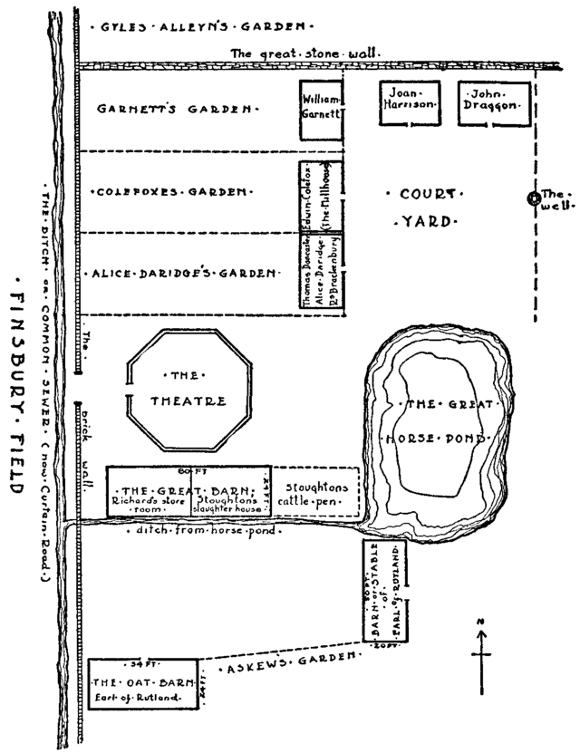Articles
- Drama developments
- Mystery and morality plays
- The earliest permanent theatres
- Elizabethan and Jacobean theatre design
- Female roles before 1660
- Restoration theatre
- Commedia dell’Arte
- Eighteenth century theatre
- Nineteenth century melodrama
- Naturalism and realism
- Twentieth century experiments
- Later twentieth century theatre
- Literary features of Elizabethan drama
The earliest permanent theatres
The rise of non-religious drama
When England became a Protestant country during the reign of Henry VIII, and again under Queen Elizabeth, the church no longer supported the use of drama. Instead there was a rise in secular plays.
The actors still had no fixed playhouse, but performed either in venues around the country such as inn-yards, or in the houses of aristocrats.
Government attitudes to drama
Since their plays could be politically provocative, the government eventually made moves to restrict them, in particular by targeting the touring actors – or ‘strolling players' as they are sometimes called - such as Shakespeare depicted in Hamlet.
In 1572, Parliament passed an act which imposed severe penalties on vagabonds – and touring actors came into this category unless they were in the service of an aristocratic master. Fortunately, the Earl of Leicester, who already had an interest in a particular group of actors, applied for an official licence for these actors, and they became known as Lord Leicester's Men.
The role of James Burbage
The leader of the Lord Leicester's Men was James Burbage. He later headed The Lord Chamberlain's Men (who, when James I came to the throne, became known as the King's Men) with whom Shakespeare wrote and acted. (See also Biographical context) Burbage was a carpenter by trade as well as an actor, and decided to build the first permanent theatre in England.
 Burbage faced a problem: the London City Council had decided that they did not want theatres within the City. So in 1576, Burbage leased a site just outside the jurisdiction of the City, and constructed the first English playhouse, which he called simply The Theatre.
Burbage faced a problem: the London City Council had decided that they did not want theatres within the City. So in 1576, Burbage leased a site just outside the jurisdiction of the City, and constructed the first English playhouse, which he called simply The Theatre.
The popularity of theatres
Within a short while several other theatres, such as The Curtain, The Fortune and The Swan, were also built. By 1599, when the lease of the land on which The Theatre was built had run out, Burbage's sons and their company, The Lord Chamberlain's Men, had constructed the most famous theatre of all, The Globe, on the south bank of the Thames.
